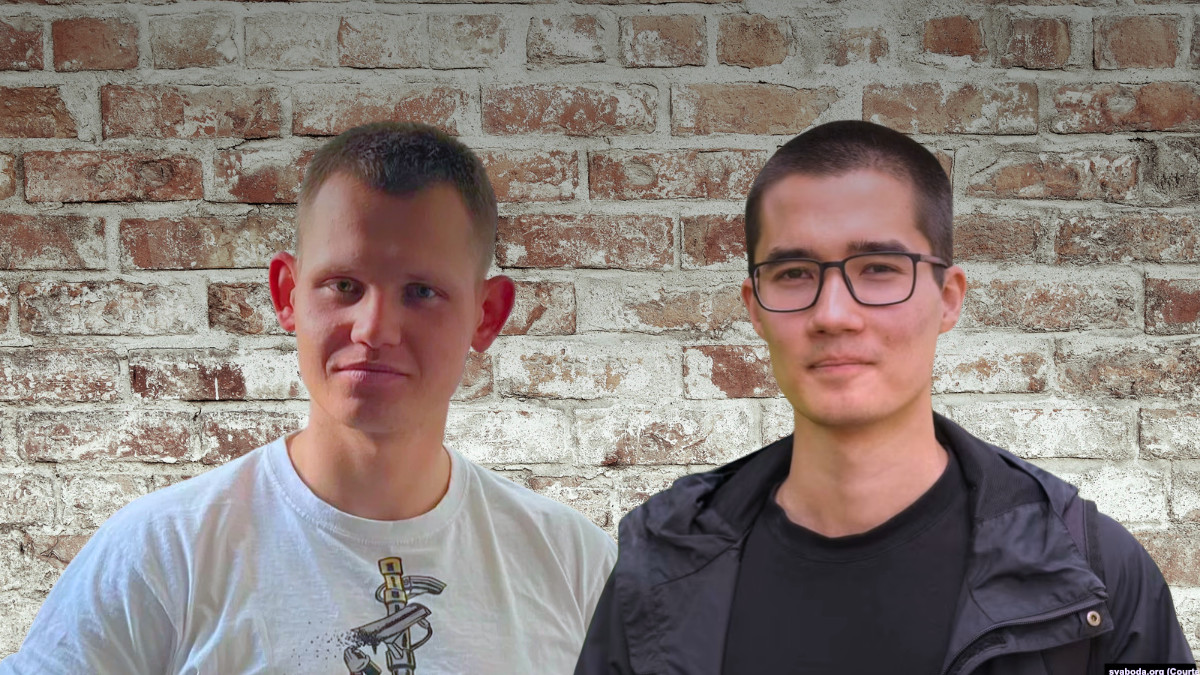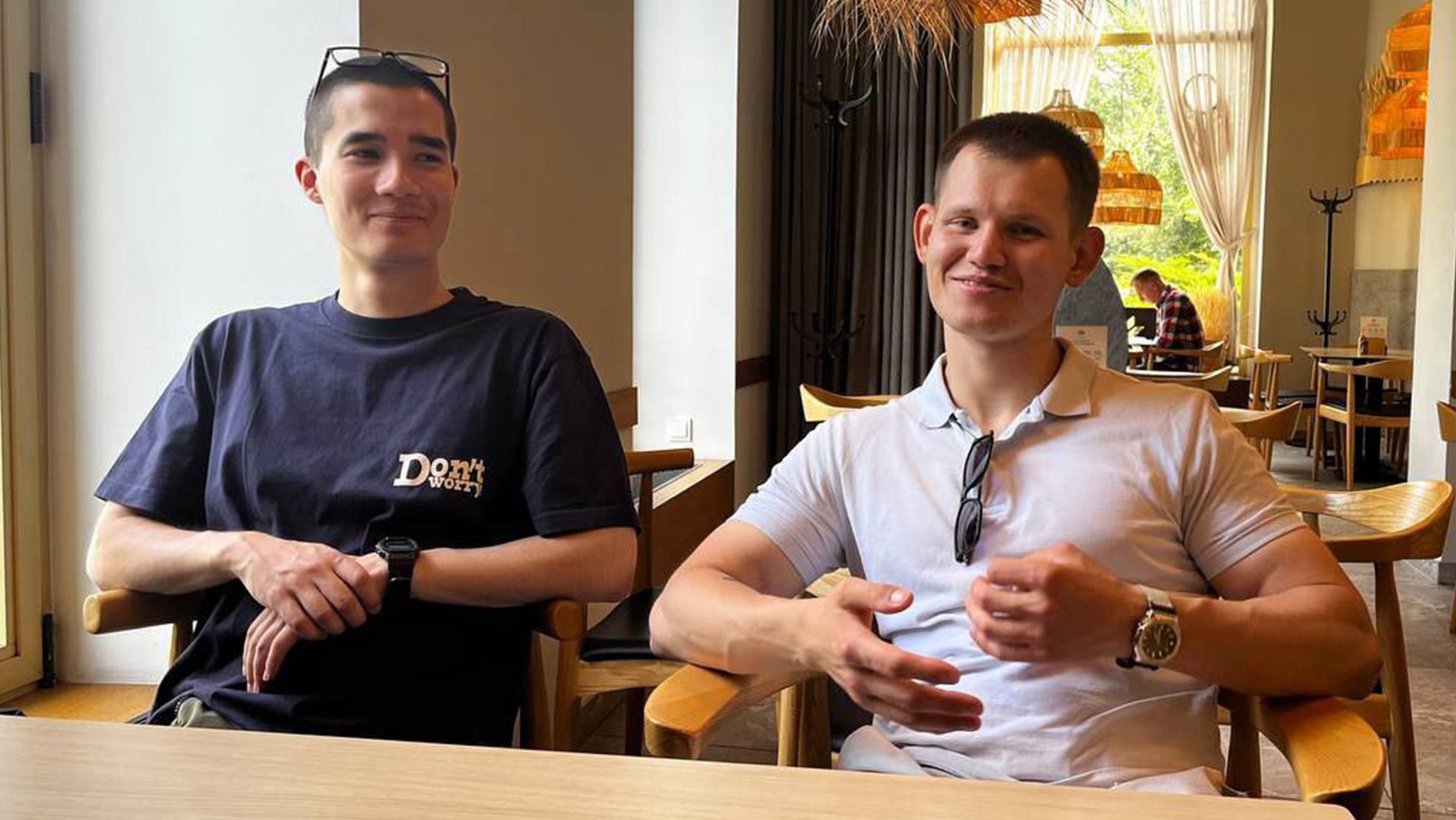In 2020, anarchists Akihiro Gaevsky-Khanada and Andrey Chepyuk were among the first to be detained on political criminal charges. They were sentenced to long prison terms in a case involving an international criminal group of anarchists. Almost five years later, Andrey and Akihiro are free, and we talk about their views on the protests, their experience of imprisonment in Belarus, their attitude to the war in Ukraine, and their own forced migration.
In the second part of our extensive conversation, we discuss with Andrey and Akihiro whether they managed to maintain their anarchist views during their years in prison and how their ideas have changed, whether they received special treatment from prison guards and other inmates, how the anarchist movement and the Belarusian political scene are perceived five years later, and whether they still have the drive to get involved and continue their activities.
Let’s go back to prison for a moment: in some interviews, you were asked whether your views had changed, and you said in different words that your beliefs had transformed, but at the same time you did not deny that you were anarchists, just that the experience of imprisonment had shaped a different view of reality, including from an anarchist perspective. Can you tell us more about how you managed to maintain your beliefs and whether you experienced any difficulties in doing so, given that you had no or very limited contact with your comrades?
Andrey
I’ll start with the transformation: it would be very sad and unfortunate if, after such a long/short period of time — it’s hard to say — a person did not change some of their views and thoughts, did not acquire something new after such a colorful experience. Whether it’s good or bad is, of course, up to each person to judge.
Even if you don’t read any literature or engage in intellectual activity, simply by communicating with such a large number of convicts, defendants, and all kinds of people, including cops, you gain something for your worldview and perception of the world. Of course, a lot depends on your attitude. If you are inclined, as they say, to “deny reality,” for example, like many ardent supporters of the opposition—they are so entrenched in their views and have a negative attitude toward anyone who does not share their views. And most often, they have some kind of everyday conflicts there, and then they end up in a PCP (a cell-type room), simply not understanding how the system works. But if you perceive information and people normally, you can learn a lot and simply broaden your view of reality and make your stay in these places more comfortable. This can also help in the future with self-realization and transforming one’s worldview.
As for ideas, I don’t know about Akihiro and the rest of my comrades, but I was lucky because I had wonderful people in prison. I wouldn’t say that the other prisoners in my cell shared my ideas, but in the camp I was with Dima Rezanovich and Sasha Belov, and it was interesting to talk to them, discuss similar ideas, and simply share everyday life, knowing that you are with people who share your views. With Dima Rezanovich, you could talk about what had happened before, discuss things, talk about prospects, and that was really great. It helped both in practical terms and in moral and psychological terms.
Akihiro
We already mentioned in the interview that there has been a certain personal transformation of ideas, and I agree with Andrei that if, after five years, you have remained completely unchanged in your thinking and have not changed anything in yourself, having had such a special, truly intense experience, I think this reflects poorly on you as a person, suggesting a certain rigidity and dogmatism. What has always appealed to me about anarchism is that it is a certain way of understanding the world, a way of thinking; that you critically question established stereotypes, institutions, relationships between people, and authorities. But, unfortunately, in this regard, ideologization also often occurs among anarchists: people are not ready to listen to other opinions, cannot critically examine their ideas, or see their weaknesses. And for me, these five years were a good opportunity to get out of a kind of “ghetto,” beyond my circle of friends, my comrades, my information resources, and to really communicate with a broad cross-section of society, from representatives of the opposition, fairly radical nationalists, bankers, law enforcement officers, former employees, lawyers, and attorneys. In normal everyday life, of course, these encounters would not have happened, and I am really glad that I had this experience.
Here is one of my favorite examples, which came as a surprise to me: I was talking to a manager from the banking system in a detention center who, despite working in such a crystallized capitalist structure — banks, financial technologies, and so on — was a staunch supporter of democratization, that is, the introduction of technologies that promote direct democracy. He told me a story about how, in 2021, Reddit users bought up shares in GameStop, which I believe is a chain of video game stores. A hedge fund decided to take advantage of GameStop’s poor position and expected the shares to fall, thereby making a profit. But then a bunch of nostalgic old guys on the internet got together, quickly bought up the shares, literally chipping in a dollar or two each, for example, and they essentially beat a large company with huge capital. It’s clear that this is purely a market story, on the one hand, but I found this example interesting: how instruments of direct democracy can work in real life, when a small person, joining forces with other like-minded people, defeated a large company. There were several such stories. I think that the opportunity to “get out of the ghetto” is a useful experience in prison.
I know that Igor Olinevich, for example, also spoke highly of the KGB detention center: as we know, there is a very specific selection of people there—corrupt officials, government officials, and big businessmen. And Olinevich, as far as I know, also highly valued this experience of being with different people.
Nevertheless, I would also like to note that the “brand” of anarchists in the Belarusian prison system—I don’t know how it is outside, but there, in the dungeons, the “brand” of anarchists is highly valued: people know that anarchists are steadfast people, people who stick to their principles. Prisoners, as a rule, do not often understand anarchist ideas — every time you have to explain who anarchists are and what our ideas are — but I think they respect the representatives of the anarchist movement who are in prison, and they know these examples.
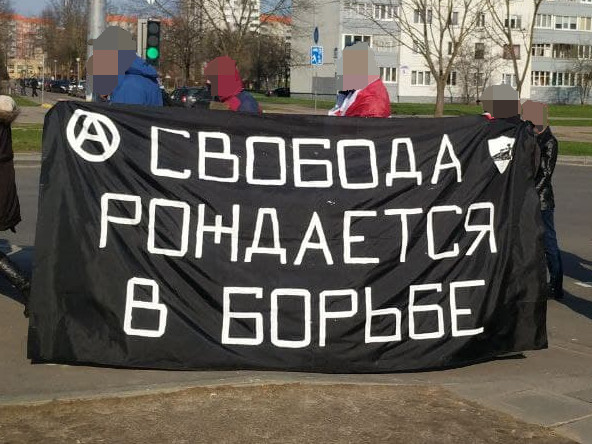
But I also clearly saw how many stereotypes there are that are apparently impossible to shake off, namely that anarchists are something radically left-wing, which means they are somehow connected with the Soviet Union: communism, Stalin, the Gulag, and so on. Every time, I had to explain that this is not what we are about. And, in my opinion, it is a big problem that you don’t immediately tell people about your ideas, but first spend a lot of time explaining what you are not, what your ideas do not represent. In this regard, I personally felt that some kind of positive rebranding was needed, so to speak, in order to move away from these old dogmas and stereotypes a little, so that you don’t have to spend time on such explanations.
As for communicating with my comrades, I was practically isolated the entire time I was in the Minsk detention center—in a cell where it was impossible to contact the other guys. This opportunity arose after I had been acquainted with the criminal case, during the trials, and it was, of course, great to meet comrades whom I knew personally, such as Andrei, and other guys or people I didn’t know before, and to see that they too were keeping their spirits up. It was very supportive. And the very realization that there are other comrades in prison — you don’t even know them personally, but you understand that you have some common values, a similar worldview, that this person is your comrade — the realization that there are such people and that they are holding on, helped me personally a lot. In difficult moments, I remembered this, and it somehow gave me strength.
And again, it seemed to me that Belarusians are interested in direct democracy, and we saw certain manifestations of this in 2020. Plus, now, five years later, many people feel dissatisfied and disappointed with the opposition structures that have formed in exile, seeing this division of power, these worst manifestations of power, which are being repeated here by people who showed solidarity in 2020, but now they are breaking up into different groups and no one wants to communicate with each other anymore, and here people have an unconscious desire for direct democracy. And it seems to me that the positive program of anarchism could work here at a certain point.
And one more thing that many people talked about five years ago, but now, it seems to me, they are talking about it even more — the rise of populism, isolationism, xenophobia, a shift to the right, and the fact that the “end of history” proclaimed in the 1990s — that liberal democracy would be the only possible and most ideal system — has not come to pass 20-30 years later. We see that the actions of Russia and China refute all this, and the situation in the United States is similar now. And so, I think many people in these established systems also feel a certain disappointment. That is why people there are rushing from one thing to another, and there is this crisis of liberal democracy.
Can anarchists offer anything now? It’s hard to say. But at least it is a fact that the current system has had such big problems in recent years, and most likely in the years to come. Another question is whether other forces will be able to take advantage of this and how.
Did you manage to infect anyone with your ideas?
Andrey
When you’re talking to someone in prison, it’s hard to abstract yourself enough to try to philosophize or talk about some distant topics. It’s hard to find someone you can trust and talk to like that, because you talk to many people through the prism of suspicion, wondering if they’re lying, and you constantly have these fears. But among the people in the camp there were some with whom it was possible to discuss things, and in such circumstances, naturally, I began to engage in conversation, to draw people toward such direct democracy, to explain that there were alternatives. And it worked—people were impressed, people were interested.
Dima Rezanovich also contributed a lot there. And, of course, literature in prison helped to reinforce ideas: both for me, to support my convictions, and at the same time to recommend literature to other people so that they would be convinced.
Akihiro
Let’s put it this way, there are people in captivity who are potentially very close to our ideas. Whether or not we have managed to infect someone with ideas, I think it will become clear when people are released from prison, because right now we can’t offer them books to read, for example. You convey certain ideas, explain them, but I think many people are simply attracted to the example of specific individuals, anarchists. And this can be used, because people have a positive image of anarchists. Yes, there weren’t that many of us compared to all the prisoners, but in each case, our comrades showed themselves in a positive light, and people saw that. Still, it’s difficult to conduct such direct agitation for the reason that Andrey mentioned—there are a large number of informants and agents, and there is a feeling of mistrust.
It is often said that prison is a cross-section of society from which it is essentially impossible to isolate oneself: you cannot simply kick someone you dislike out of your cell or leave, refuse to communicate with someone; you are forced to remain in this cell and look for new ways of interacting with others. And that’s what anarchism is all about — sooner or later, everyone will have to coexist and come to an agreement.
Did you feel any special attitude when people knew you were anarchists? Was it a kind of marker, for example, for guards or other prisoners?
Andrey
It was mentioned above that in prison you can’t go anywhere, you can’t hide anywhere, and this is quite a good method of putting pressure on convicts by the administration, by the cops. I experienced this myself when I was locked up in a double cell: when you’re there with one other person, one-on-one for a couple of weeks. And in fact, it’s not very pleasant; it’s no longer a community, but simply a confrontation: who is stronger mentally, who is stronger morally, or in some other way. In this case, it’s more harmful than beneficial.
Of course, if it’s an artificially created society, when the cops just throw some “old-timers” into the ‘hut’ and you’re a “newbie” who’s only been there for a week, and they try to get you to testify or just intimidate you morally before the GUBOP guys arrive.
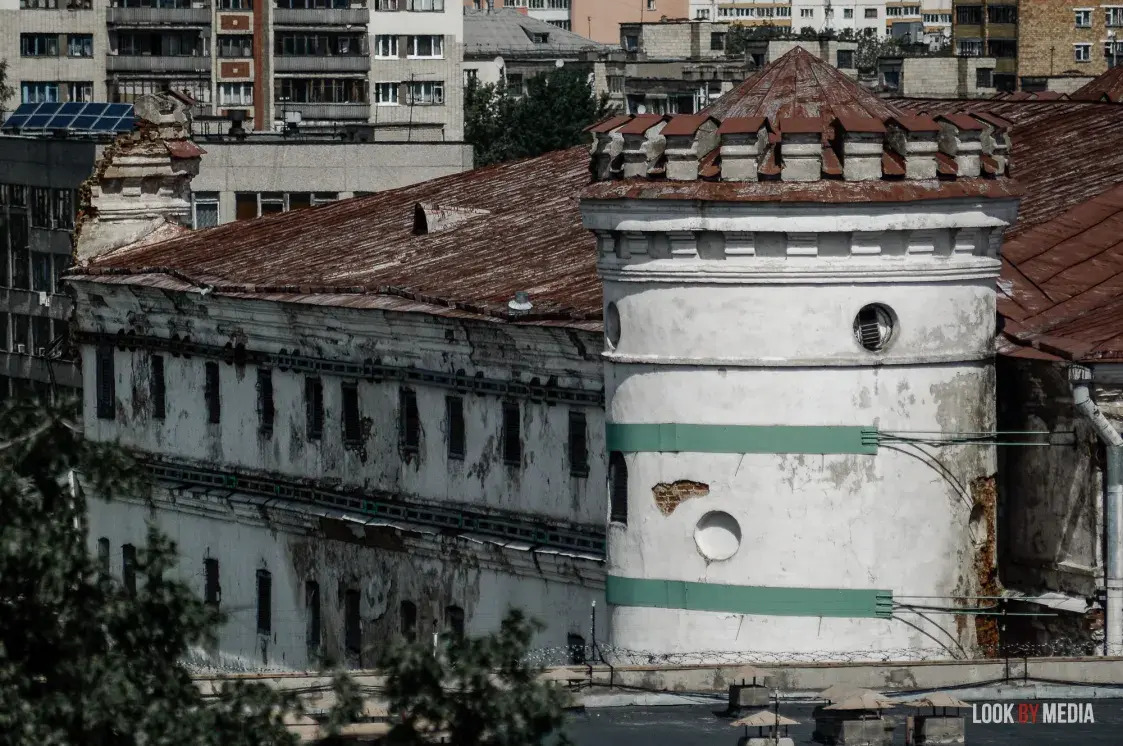
But in another situation, it all works as naturally as possible: if these are just random people, like in a “classic hut,” then it’s interesting to see who has enough wit, life experience, emotional and psychological intelligence to have a better influence, for whom it will be easier, and who will be able to better solve their personal problems. This includes helping others solve their problems once they have adapted themselves. I observed this very often when I was sitting in a cell under investigation and had enough free time, and I made some discoveries for myself, and sometimes I was just angry at people that they couldn’t do some primitive things in their adult age, having lived their lives. And then it dawned on me that they had lived their lives completely differently: maybe they never cleaned their homes, they always had women hired for 50 rubles who came once a week to clean and wash the dishes. I just didn’t understand that such a thing was possible at the time, even though I had lived with different types of people before, but I had never shared living space with people from the other side of that divide, and that was interesting. And social manifestations work well there.
But, again, unfortunately, most often everything is done artificially. It is difficult to make it all come together organically by chance. Most often, either the chamber is filled with people who are not the best and most socially responsible, filled with operatives, or, conversely, there are many wealthy people and one or two socially disadvantaged people, who are supposed to coexist somehow. If everything had come together randomly, so that the group included representatives of the opposition, representatives of business, some poor people, and someone else, it would have been interesting. But more often than not, either everything is filled with politicians, or everything is filled with commerce.
At the same time, the cops didn’t make any distinctions; they didn’t differentiate or understand how our case—which they called the “Dozens” case—was different from other criminal cases. There was no difference. On the part of the convicted and those under investigation who had been involved in Belarusian politics before 2020, i.e., representatives of various organizations and parties, there was minimal understanding; that is, they could superficially distinguish our case from all the others. But, again, superficially and without much interest or delving into the details.
Some showed interest if they had previously been imprisoned with my comrades: people came from the KGB detention center and said that they had been imprisoned there with Rezanovich or had seen Olinevich. And this is more related to the previous question: did the anarchists prove themselves well or in any way help these people who mention them? And this positive image of anarchists worked in my favor during my meeting.
Akihiro
Regarding special treatment: in principle, there was no special distinction in the Minsk detention center—anarchists there, non-anarchists there. For many, the BCHB members, as they are called, or the opposition—it’s all the same. That is, the majority did not understand the difference, including the staff and prisoners. But when people had been there for a while and met different people, they would say, “I was there with so-and-so,” or “I read about anarchists there,” and so on. It was more from personal experience than from knowledge about ideas or why we were there. Although many people knew about our criminal case, it was specific and word of mouth worked.
Later, when I arrived at the colony and was still in quarantine, almost everyone from the administration came to “meet” me. They asked me, “Do you consider yourself an anarchist?” and “Have you remained true to your beliefs?” These questions were repeated several times during my imprisonment in the colony. I know that there were political prisoners who said, “No, no, I’ve realized everything,” or evasively avoided answering. But I don’t like to be evasive or lie about such things, and I didn’t deny my beliefs. At such moments, I felt that there was negativity, that there was a distinction: that you were not just an ordinary political extremist, but that there was a more prejudiced attitude. As I was later told, upon arrival at the colony, I was immediately a candidate for prison regime. And not because I had somehow shown myself in the colony — I had only been there for a short time and there had been no particular conflicts — but simply because the case was that of an anarchist-extremist with a long sentence, which was immediately a marker.
And in prison, there wasn’t really any distinction either. Maybe somewhere in the leadership, but for ordinary employees, there was no particular difference; they didn’t delve into the details there.
Andrey
Colony No. 22 is famous for having many “drug addicts,” including members of subcultures and various punks. And these guys, who have already “served their time,” have a desire to “strengthen” this time together, because they are a subcultural community or something else that they value, and they understand that you are close to them, even though you are different from their lifestyle and way of thinking, but they are also drawn to you. This kind of solidarity happens at the subculture level after a certain amount of time, when you get to know each other and see if someone is a decent person or not.
During the five years you were away from freedom, the anarchist movement and the various groups and collectives you were part of either ceased to exist or scattered around the world. What is your impression of the anarchist movement now? What is it like to be released and see the current reality? Is it easy for you now to orient yourself, understand what you want to do, who to join, or maybe create something new?
Andrey
As a very famous anarchist from Gomel once said a long time ago, the anarchist movement in different countries is like a sine wave: it becomes active, reaches a peak, then repression and destruction occur, and after a while it gradually rises again. And I, already in the detention center, realized that repression, a terrible situation, is happening now, and the main thing is to get as few people as possible involved. Naturally, there will be minimal activity, or no activity at all. It’s just a matter of time before people start acting under a different name, with different groups, but in roughly the same direction.
As for disappointment, there was none, because, as I said earlier, I took it in stride and understood that this is exactly how things would turn out. At this point, it is difficult for me to assess anything objectively. To be honest, I have not yet studied the transformation that has taken place, because right now it is very difficult to even resolve everyday issues. I haven’t delved into it yet. But I am sure that the people who held everything together for so long, and those who were involved in some kind of activity, are still doing so, just perhaps in other organizations, in other places. And I don’t rule out that after a while, more people will form some kind of groups or grow into something else.
There is a tremendous amount of energy that you accumulate during your entire time in prison. At the same time, you accumulate various ideas that you would like to implement, something you would like to learn, something you would like to try to do. And because you are constantly learning something new and communicating with someone during your time in prison, these ideas and desires that you want to realize when you are free accumulate, accumulate, accumulate. Later, when you are released, you need to first address the issues that will satisfy your basic needs. A lot of time has been lost, and you need to recreate what has been lost over these 4-5 years. And then you can do what you want in your free time.
Akihiro
I can’t say that this month of freedom was enough to understand everything that has changed. I was pleased to see screenshots from the internet during the review of the criminal case (we found a lot of interesting things in the case materials that are still worth analyzing and reflecting on) from over a year after our arrest, showing how solidarity manifested itself, how people were doing something, how anarchists were participating in protests, and so on.
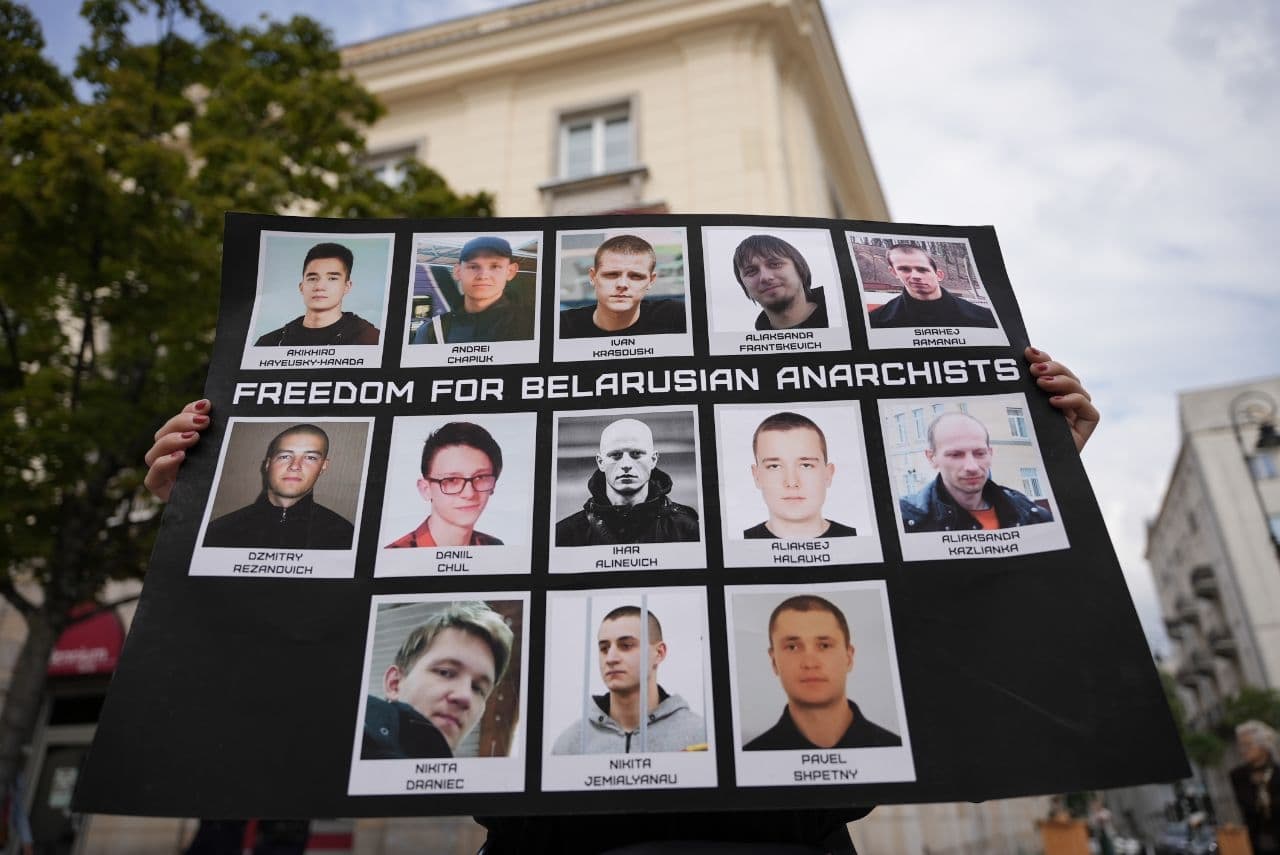
And later, in bits and pieces, I learned about the emigration of most people from Belarus, about the fact that many comrades took part in the war when the full-scale invasion of Ukraine began. And there is no disappointment, because, again, the specifics of emigration, the activities there are very peculiar, in general it is difficult to do anything, people face a lot of personal everyday problems, much of what constituted activities within the country makes no sense abroad. All this was clear to me.
And the fact that some things from the past will fade away, but something new will appear, seems natural to me. And personally for me, and I discussed this with the guys during the trial, during the investigation, with my comrades, meeting now after my release or corresponding on the internet, I see how petty many conflicts and disputes were, remembering all these situations that really divided people over nothing, how insignificant it all was and how much time and energy was wasted on it all. I would like the people who are now free, and those who will be released, to be able to overcome their differences, reorganize, and reach a new level. Because there is strength, energy, as Andrey said, and ideas, many new things that I have discovered for myself, many things that I want to try and learn. Again, I want the movement to break out of a kind of “ghetto”: we should not exclude broad interaction with each other and with others in order to understand what is happening in society as a whole, not just focus on our own movement, our own groups.
But for now, I have to sort out everyday issues, and unfortunately, there are only so many hours in a day, so I can’t get involved as actively as I would like. Although it’s not so much that this limits me as the fact that I want to figure out for myself what I can do, what is really effective, and where I can apply my skills. Other than that, I personally don’t feel any disappointment, apathy, or fatigue. It just takes time to get your bearings, and I hope that people who have been in exile for a long time will also be able to maintain their energy, continue their activities in new forms, and overcome the problems that have existed for a long time.
Given that we have very different experiences — some of us have been in exile for a long time, some have not been imprisoned, but you spent almost five years in prison — what are your first impressions or observations of the Belarusian political scene? What conditions do you think are necessary for change in Belarus?
Akihiro
We had, let’s say, internal migration while we were in prison, because even though we were in Belarus, we didn’t know what was happening outside the prison system, so I’m only finding out about many things now. How many restrictions and tightening of rules have appeared since we were released, how difficult life has become, and how this has simply become the norm, a new reality of sorts. Although in prison, I thought that things weren’t so bad.
What I see in some media outlets that cover the situation in Belarus: it seems like news from Belarus, probably provided by someone from the country, but the way it is presented… I feel detached. This is probably inevitable — detachment from the Belarusian reality. Although, as it seems to me, without understanding the real situation in the country, without understanding who is in Belarus now, what people think, how they live — it is impossible to influence these changes from the outside.
I cannot imagine change without people acting in Belarus. That is, it is not very clear to me when there are arguments about why you did not leave, why he did not leave, why he stayed. Although I myself am already in exile, it is not clear to me why everyone should leave, who will then bring about change. Yes, there are currently no indications that something will happen in Belarus tomorrow. But if we don’t build up some kind of critical mass there, if there are no people inside the country who want change, I find it difficult to imagine that anything can be changed from outside.
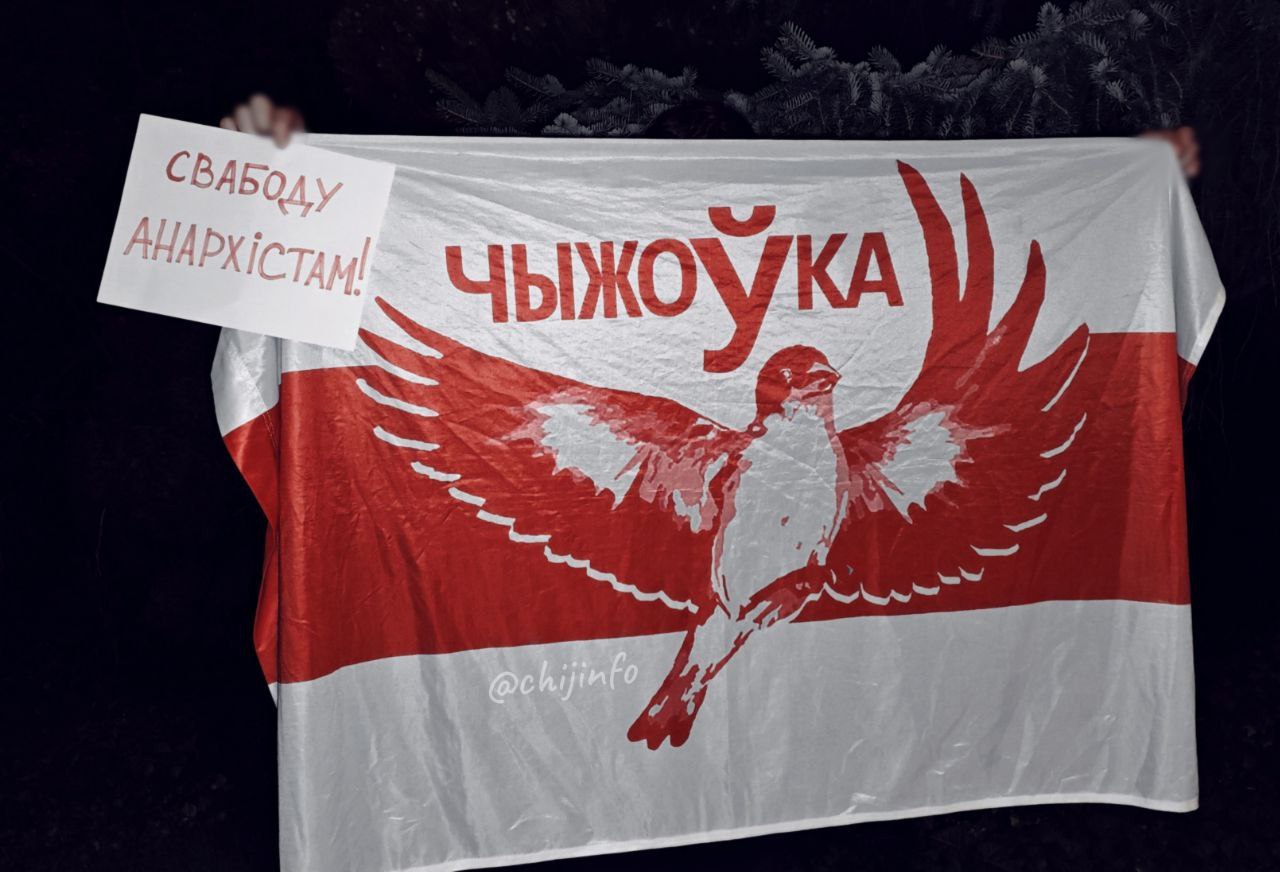
And the second point is the inevitable disappointment from prolonged migration, from the fact that no changes have taken place, from the fact that activities in exile are often ineffective, from the fact that the society that showed solidarity in 2020 ultimately disintegrates over time, and the division of power, resources, and so on begins. It seems to me that this is a fairly classic path of political emigration, and it has happened to many people: the Czechs after 1968, the Lebanese when the civil war began — everyone thought it would be short-lived, that we would leave for a couple of years and return soon. But in the end, everything drags on, and it seems like you have to build your life there, you have to integrate, but you don’t really want to, and you plan to return. And the question is, will the people who return be happy, will they be able to fit in, will their expectations of their homeland be realistic? And that is why the current situation is so complicated. I see that connections are breaking down, everyone is busy with their own little area of activity, and contact and interaction with others is decreasing because there is this disappointment and mistrust, and it is growing.
Unfortunately, I don’t have an answer for what to do about this. But this is what I have probably seen in my month of freedom.
Andrey
As I said earlier, the political scene (or political situation) was not a priority for me in the early days after my release, as global changes were taking place, and because I had been in an information vacuum for a long time, it was difficult for me to navigate what was happening and make any objective conclusions. But after several months of freedom abroad, my feelings are as follows: the Belarusian political scene is quite extensive, but for some reason very modest. Of course, I don’t know all the “inside story,” but I get the feeling that there are many opportunities here, but these opportunities are either missed or realized not for the sake of results, but for the sake of the activity itself.
I think that now we need to make the most of all the resources available to us. This also applies to “big politics” — if there is an opportunity for dialogue with European officials or with the government of a particular country to help Belarusians who are forced to migrate, we need to use it!
Also, I think we must not forget what has happened and is happening in Belarus: the gross violations of the law by the Belarusian authorities, the crimes against the Belarusian people. We need to work on this, speak out about those responsible, and take concrete action in international institutions.
Clearly, everything should not be built around “one person.” In order for this whole vile system to stop working the way it does, people who do not remember the USSR and know how people live in neighboring countries must grow up and take their places in institutions and ministries. This, it seems to me, is the minimum requirement for a person not to be attracted to “Belarusian stability” and the current model of life. Without the possibility of looking into tomorrow.
